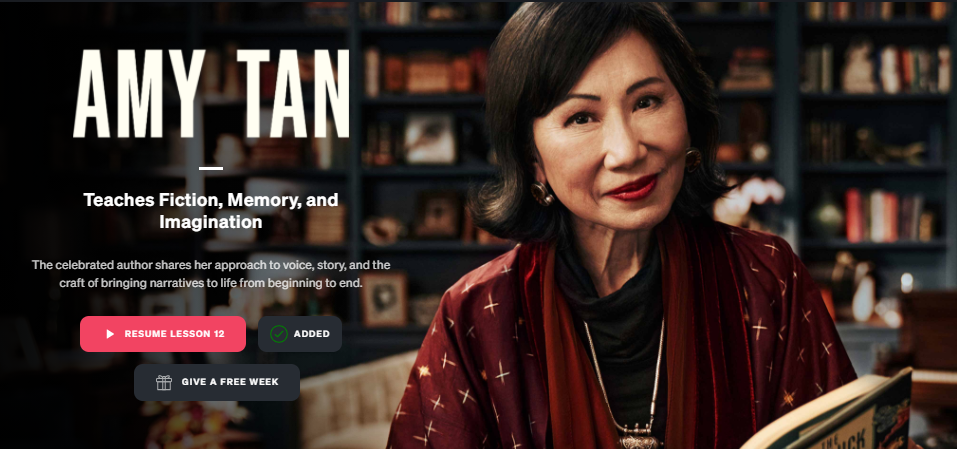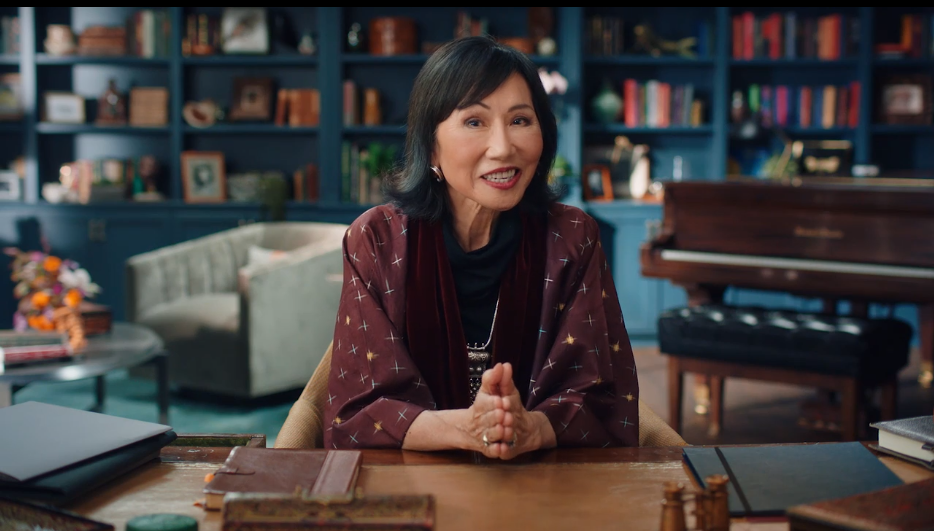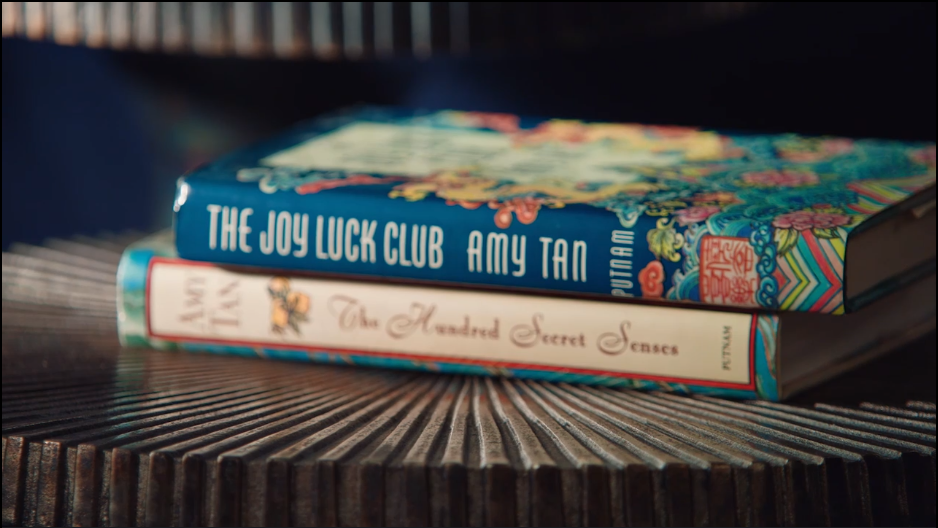- Home
- Courses
- MasterClass
- Amy Tan Masterclass Review
Amy Tan MasterClass Review: If You’re a Writer, This Class is For You
Here is my review of the Amy Tan MasterClass, a class that offers valuable insights and timeless reminders for writers of all sorts.

Continuous education is important for writers.
Every now again, it's important to be reminded of why you do what you do, while learning ways to improve and enhance your craft.
Here is my review on the Amy Tan MasterClass, a class that's designed to help you hone your skills in three key areas that every writer must address at some point: fiction, memory and imagination.
This post may contain affiliate links. Please read my disclosure for more information.
Who is Amy Tan?
Amy Tan is a Chinese American writer, known as the author of the New York Times Bestselling novel, The Joy Luck Club.
Amy was born on February 19, 1952, in Oakland, California, to Chinese immigrant parents. At age 15, she tragically lost her older brother and father to brain tumours, after which she travelled with her mother and younger brother across Europe, later settling in Montreux, Switzerland.
She returned to the United States for college, where she attended five colleges and received a B.A. in English and Linguistics, followed by a M.A. in Linguistics.
In 1985, while working as a freelance business writer, Amy started writing fiction in her spare time.
Her first story was published in 1986 in a small literary magazine, and in 1987, she received three offers for a book of short stories, which later became The Joy Luck Club.
Amy Tan Teaches Fiction, Memory, and Imagination

What is the MasterClass About?
A defining feature of Amy Tan's work is the way she intimately reveals the inspirations that underlie her extraordinary fiction.
By delving into vivid experiences from her traumatic childhood, she paints a picture of the kind of complex family relationships and near-forgotten memories that readers all over the world can relate to.
In this MasterClass, Tan reveals the inner workings of her writer's mind.
Drawing on the emotional memories and personal truths that have become the basis of her novels, she walks you through the process that she uses to develop her narratives from beginning to end, demonstrating how you too can write stories that resonate.
Class Syllabus
Amy Tan's MasterClass is 3 hours 12 minutes long, and it includes the following 14 videos:
- Lesson 1: Meet Your Instructor: Amy Tan
- Lesson 2: Finding Your Writing Voice
- Lesson 3: Memory, Truth, and Imagination
- Lesson 4: Research and Observation
- Lesson 5: Beginning Your Story
- Lesson 6: Narrative Point of View
- Lesson 7: Character Development
- Lesson 8: Choosing the Right Words
- Lesson 9: The Revision Process
- Lesson 10: Writing Companions
- Lesson 11: Writer's Block
- Lesson 12: Behind the Scenes: The Joy Luck Club Movie
- Lesson 13: Amy's Rejection Letters
- Lesson 14: How to End Your Story
As with every masterclass, this class includes high-definition videos, a downloadable workbook (full of awesome content and writing exercises), and unlimited access to 100+ classes taught by other top instructors.
=> Watch a section of the Amy Tan MasterClass here.
Amy Tan MasterClass Review - My Overall Thoughts

Although I'm not a fiction writer, I learned so much from taking this masterclass.
Amy Tan's insights on fiction, memory and imagination are so enlightening - and can be applied to any type of writing.
At the end of the day, if you're a writer, you're a storyteller.
It doesn't matter if you write fiction or nonfiction, your purpose is one and the same - to engage your audience and make them believe in something greater than the words themselves; to change their way of thinking or move them to action.
Through examples from her own work, Amy warns you of the sort of pitfalls that beginner writers commonly make, and how to avoid them.
She shows you how to find your own voice and transform your observations and experiences into a written narrative that is deeply meaningful.
Each lesson carries major words of wisdom that I sometimes had to watch more than once.
I definitely recommend having a pen and paper on hand when you take the class, because you'll likely be taking a lot of notes!
Related: How to Gift MasterClass
You'll benefit the most from this class, if...
Based on my experience, I think Amy Tan's MasterClass would be particularly beneficial for writers who include any of the following aspects in their fiction:
You write about personal trauma.
Writing about painful past experiences is never easy. This class will show you how to use your emotional memories to write a powerful story that incorporates the narrative of your life into the narrative of your fiction.
In fact, in the class, Amy explains how writing is a form of communication with yourself. Sometimes you won't fully know what you know, until you start writing.
Your characters are based on people you know in real life.
If your fictional characters are based on people in your life, how do you decide what to put in without offending somebody or telling their secrets?
In this masterclass, Amy shows you how to write about friends and family members with integrity and empathy, in a way that enables you to create realistic characters (and avoid lawsuits!).
Your writing process involves a lot of research.
When you write fiction, you'll likely have to research details that relate to your characters and setting. However, one of the dangers of research is doing too much of it.
In this class, Amy Tan will show you how to find a balance when researching, so you don't get consumed by unnecessary details and waste precious time that should really be spent writing.
3 Key Takeaways from the Amy Tan MasterClass

1. "Personal Truth Brings Universal Resonance."
The above quote is one of my favourite takeaways from The Amy Tan MasterClass.
As Tan explains, fiction is one of the best ways of finding truth. People think that fictional characters are completely made up, but in reality, there's always a real, human element to them.
Why?
Because as an author, every character you create incorporates at least a tiny bit of your personality.
Within every character you reveal an obsession, a sadness, or dilemma that you've faced in your life.
This is why your story can still be relatable even if it's set in another culture or time period. That's what fiction does - once your story gets into the reader's hand it becomes their book.
If you write truthfully, you will probably succeed in writing a story that is believable.
Your reader will pick out the traits and elements that they identify with, the aspects of human nature that transcend generational and cultural divides.
2. "Be Tough on Your Writing, Not Yourself."
Writing is a very personal process.
Many beginner writers dread the thought of having to revise or cut out sections of their work, because it feels like they are deleting a piece of themselves.
However, revision is necessary to become a better writer.
You have to be willing to perfect your craft, even though it will never be perfect.
In this MasterClass, Amy Tan reveals just how much revision she typically does with each of her stories, in order to create a beautiful and satisfying end result.
As she explains, revision involves letting down your guard. You have to let down your defenses, in order to see things as they are.
It's also extremely important to know yourself as a writer. Most writers have a tendency to either overwrite or underwrite.
Analyse your work and ask yourself the question: Do I shorthand my characters and leave out key details, or do I say too much about them to the point where there's no more room for growth?
Sometimes you will be met with some shocking realizations, either through self-analysis or external feedback.
But remember that feedback about your work is not personal criticism. It may feel strange at first, but try to get into the habit of making a separation between yourself and your craft.
3. "A Good Storyline Is Inevitable, Not Predictable."
In other words, when your story ends, it should make sense to the reader - but they shouldn't have been able to predict it from the beginning.
The overall meaning of the story should gradually build up in each chapter, until it becomes self-evident in the end.
Provide clarity and answer key questions, but don't hammer the point until you have lost the impact.
It's much more powerful to feel the ending, than to have it told to you.
Final Thoughts: Is the Amy Tan MasterClass Worth it?

I think the Amy Tan MasterClass is a worthwhile class for writers who are looking to explore their craft in a new, exciting way.
It's the sort of class that helps you dig deeper to find out the influences behind your particular writing style, so you can build upon your strengths while working on your weaknesses.
Moreover, Amy openly invites viewers to take a look at her own growth and progression as a writer, even sharing some of the rejection letters she's received over the years.
This class will be incredibly helpful to you if you write fiction, but even if you don't, it'll infuse you with a fresh perspective and provide you with the expert tools you need to take your writing to the next level.
=> See the newest classes on MasterClass.
Related:
Thanks for reading! If you liked this content, share with a friend:
Recent Articles
-
5 Subtle Habits That Quietly Transform Your Life Over Time
Jan 25, 26 08:21 PM
Progress towards the things that matter isn't usually loud or dramatic. Here are 5 subtle habits that quietly transform your life over time. -
Inner Work with Marcus Lynn | How to Make Change More Realistic
Jan 19, 26 06:24 PM
In this spotlight interview, therapist Marcus Lynn explains how we can begin to see emotions as information and make change more realistic in our lives. -
7 Best Personal Development Courses to Grow Your Skills and Mindset
Jan 01, 26 11:04 PM
To reach your goals for the year, there are are certain skills you might need to unlock first. Here are the best personal development courses to level up your life in 2026.









